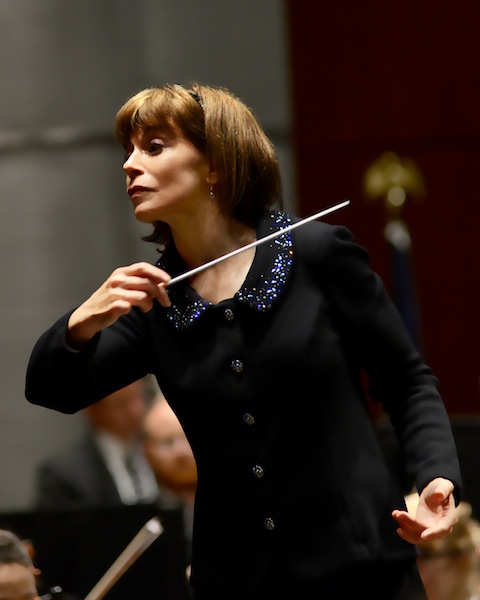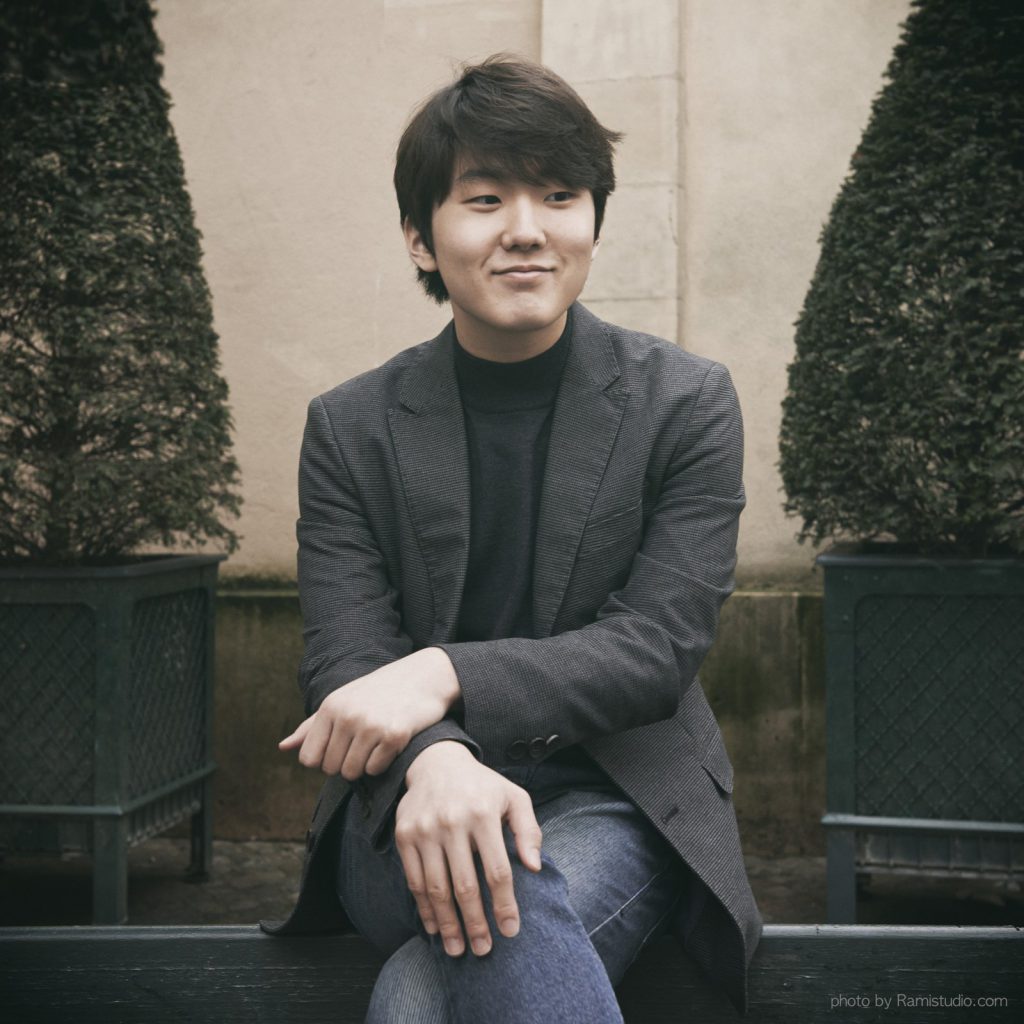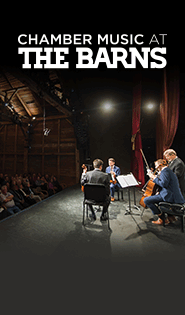Vocal soloists seduce in NSO’s “Carmina Burana” at Wolf Trap

JoAnn Falletta conducted the National Symphony Orchestra Friday night at Wolf Trap. File photo: Cheryl Gorski
The Gianandrea Noseda era was to have begun on Friday evening, with a blockbuster summer concert by the National Symphony Orchestra. But the music director designate suffered a back injury last month, requiring him to withdraw from the big night in the outdoor Filene Center at Wolf Trap to recover from surgery. JoAnn Falletta, music director of the Buffalo Philharmonic and the Virginia Symphony Orchestra stepped in to take Noseda’s place.
Mosquitoes, heat, humidity and other expected perils of a summer concert in northern Virginia stayed at bay. Instead, a major storm system settled in over the area, dropping buckets of rain.
The program opened with Beethoven’s Piano Concerto No. 5. At the keyboard was Seong-Jin Cho, now 23, winner of the gold medal at the International Chopin Piano Competition in 2015. The South Korean pianist gave a virtuosic flourish to the cadenza-like solo interjections of the opening measures. In this gesture that recurs throughout the first movement, Cho sounded more dutiful than spontaneous.

Seong-Jin Cho. File photo: Ramistudio
Cho was at his best in the mysterious second theme of the first movement, creating a suspended feeling in the distant minor key that modulates to major. Though her beat was not always clear, Falletta gauged the orchestral balance well, giving Cho plenty of space to weave the delicate fabric of the slow movement. The pianist’s right hand produced a clear, bell-like sound over the strings, even with the high treble end going astray in intonation due to the humidity.
Scholar William Kinderman noted that the power of this concerto depends “on the withdrawal of the music into a mysterious stillness” more than the military-style outer movements. Such a moment happened at the end of the second movement in this performance, as Falletta set the orchestra gently on the final harmony, as if on a pillow. Cho, with a diaphanous touch, mused on the theme of the impending third movement, as if lost in a dream.
Cho was not a daredevil in the finale, which was skillful and well judged, but not thrilling. Part of the problem was with the setup to the returns of the rondo theme, which should create a growing tension. Neither Falletta nor Cho could quite agree on how to make that happen, and most of these exciting moments passed by without notice.
Imagine a choral work based on smutty and amoral lyrics created by medieval students and churchmen and preserved in a manuscript by monks in Bavaria. Now imagine that the composer who set these words enjoyed an advantageous association with the Nazi Party in Germany in the 1930s. Both are true, but neither has managed to dent the popularity of Carl Orff’s Carmina Burana.
A large chorus was amassed for this concert, consisting of singers from the Choral Arts Society of Washington, the Washington Chorus, the Capitol Hill Chorale, the Fairfax Choral Society, George Mason University, the Heritage Signature Chorale, and the Reston Chorale. The ad hoc collective sang with more verve than polish, but the diction came across clearly, with some rushing, especially from the male chorus in the drinking song section, which was set right by Falletta.
The trio of soloists proved the highlight of the work. Tenor Nicholas Phan hammed up the song of the roasted swan, with a bright vocal placement that bordered on a howl. Baritone Brian Mulligan had a broad-shouldered authority in his pieces, challenged only by the highest notes in the first tavern song (which includes the words “I am eager for the pleasures of the flesh more than for salvation”). He had both the braggadocio to pull off the drunken, gambling abbot and the crooning falsetto of the seducing lover.

Amy Owens
Soprano Amy Owens, who has already proven her worth in the young singers program at Wolf Trap Opera, was an excellent replacement for Heidi Stober, who also had to withdraw from this concert for health reasons. With spot-on intonation and a pretty, virginal tone she was a sensation, especially in the orgasmic solo “Dulcissime” with its sighing high notes (“Sweetest one! I give myself to you completely!”). She was matched beautifully by the sweet voices of the Children’s Chorus of Washington in the love section (“The girl without a lover misses out on all pleasures”).



